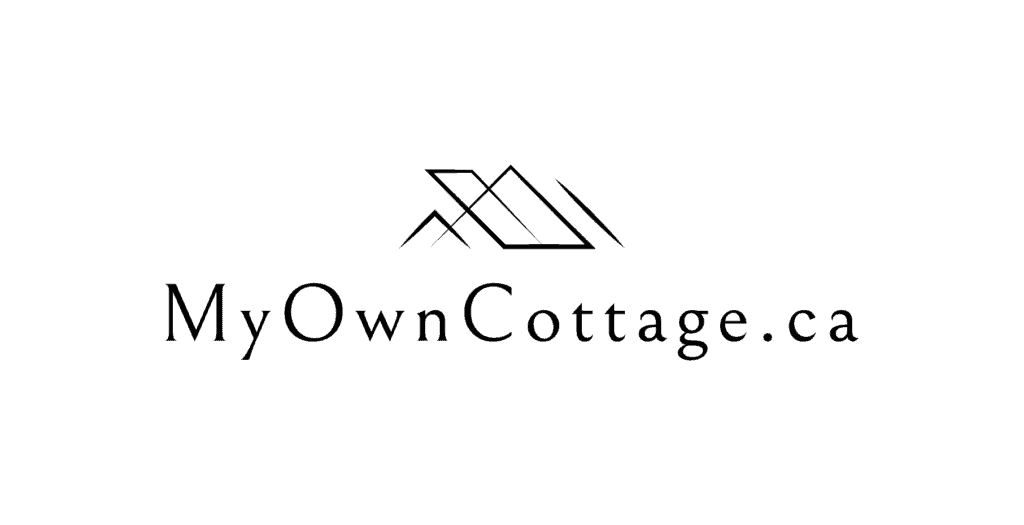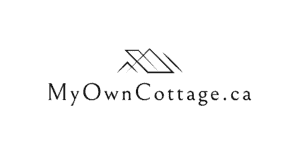Ontario Prefab Cottage Zoning Laws Explained: Your Expert Guide
Explore Ontario prefab cottages zoning laws here!
Find what you need to know about building codes and local municipal regulations in your area.
Understanding Ontario Prefab Cottage Zoning Laws
Ontario prefab cottages zoning laws: Prefab cottages in Ontario must comply with the Ontario Building Code and local municipal zoning bylaws, including standards on lot size, setbacks, height, lot coverage, servicing, and parking.
This includes CSA A‑277 or Z240 factory certification plus local site-by-site zoning compliance.
Thinking of building a prefab cottage in Ontario?
Whether you’re envisioning a cozy tiny home by the lake or a spacious vacation home for the whole family, understanding Ontario’s zoning laws is the essential first step in making your dream home a reality.
What Every Buyer Needs to Know
From building permits to square footage regulations and land use restrictions, navigating municipal rules can feel daunting.
This guide demystifies the zoning and building code requirements, drawing on real customer experiences and insights from cottage builders and regulatory professionals.
If you’re exploring Myowncottage.ca or comparing modular home options, here’s what you need to know to build in the right place—with peace of mind.
🧭 What Are Zoning Laws, and Why Do They Matter?
Zoning bylaws are municipal-level rules that determine how land can be used.
In Ontario, these laws govern:
Lot size minimums and setback requirements
Maximum square footage and building height
Whether you can build a secondary dwelling (like a guest house or custom cabin)
Restrictions for vacation homes, home offices, or rental usage
👉 Before purchasing land or selecting a floor plan, contact the local planning department for the zoning designation of your lot.
📍 Pro Tip: If you’re rebuilding on an existing cottage footprint, some zoning rules may be grandfathered. Always check with your municipality.
✅ The Role of the Ontario Building Code (OBC)
All prefab cottages in Ontario must comply with the Ontario Building Code (OBC), which sets standards for construction technique, energy efficiency, safety, and accessibility.
For Modular Homes, this typically means:
Factory-built components certified to CSA A277 or Z240 standards
Site setup and connection to utilities must pass inspection
Meeting insulation and high-performance window standards for cold climate zones (especially if pursuing a Passive House approach)
🛠️ Experience Highlight
One My Own Cottage customer in Haliburton had their prefab build halted mid-process because the structure exceeded the allowed height under R2 zoning.
With expert help from My Own Cottage, they submitted a successful variance application and resumed building within 4 weeks.
🔍 For a comprehensive breakdown of zoning laws, permits, and development requirements, read our guides:
👉 Can I Build a Prefab Cottage on My Vacant Land in Ontario?
👉 Can I Put a Prefab Cottage on Waterfront Property in Ontario?
📏 How Size and Layout Affect Zoning Compliance
Zoning bylaws may restrict:
Living space (e.g., minimum 400 sq/ft for a dwelling unit)
Total square footage relative to the lot
Specific room requirements like a living room, dining room, or entry door placement
Custom design is often the key to compliance.
Choose a home model that’s adaptable to local rules, or work with builders who offer building plans that reflect common Ontario zoning scenarios.
🧰 Helpful Checklist:
Verify allowed square foot range
Check height and footprint maximums
Confirm driveway and outdoor space requirements
Ask about rules for adding a home office or future guest house
🧱 Traditional vs. Prefab: What’s Different Legally?
A common misconception is that prefab homes face different zoning rules than traditional construction.
In truth, the entire process is the same from a regulatory standpoint.
However, prefab construction offers a huge advantage in one key area: controlled environments.
Benefits of Prefab Under Zoning and Inspection:
Faster construction (often 30–50% quicker)
Reduced construction delays due to weather conditions
Less onsite disruption in environmentally sensitive areas (e.g., lakesides)
💡 Cost Savings: One client building a custom home in Muskoka saved over $20,000 in seasonal labor delays thanks to My Own Cottage’s off-site fabrication model.
💬 Real Estate and Zoning: What Buyers Need to Know
If you’re buying land to build a custom cabin, be sure to ask your real estate agent:
Is the property zoned for seasonal or year-round use?
Are tiny homes, modular homes, or unique structures permitted?
Is there road access and servicing (e.g., hydro, septic, water)?
Many Ontario municipalities still lag behind in updating zoning for alternative housing models.
A site visit with your builder or zoning consultant can prevent costly surprises.
🔍 To avoid costly delays or legal issues, be sure to review our expert-backed resource:
Do You Need a Building Permit for a Prefab Cottage in Ontario?
This guide includes insights from licensed Ontario building inspectors and links to official municipal permitting tools.
🏡 Why My Own Cottage Makes Zoning Easier
As one of Ontario’s leading cottage builders, My Own Cottage brings:
Decades of experience navigating local bylaws
Strong working relationships with rural and northern planning offices
A library of building plans pre-vetted for compliance in 30+ jurisdictions
And the best part? The exceptional service means you’re supported from your first zoning inquiry to final entry door installation—with excellent support every step of the way.
✅ “They handled everything with the township, including drawings and minor variances. I felt taken care of through the entire process.” – Rachel B., Tiny Home Owner, Parry Sound
📎 Before You Build: Your Zoning Due Diligence Checklist
Contact the local planning department to verify zoning
Confirm permitted uses: residential, seasonal, accessory dwelling
Measure your lot against required setbacks and max living space
Request a zoning certificate or pre-consultation
Ask your builder if their designs meet local and OBC building codes
Conservation zones often come with strict development restrictions, so before purchasing or planning a build, read our vetted legal guide: Can You Put a Prefab Cottage in a Conservation Area in Ontario?
This guide was reviewed by land use professionals and based on current policies from Ontario Conservation Authorities.
Final Thoughts: Build Smart, Build Legal
Understanding and complying with Ontario prefab cottage zoning laws is not just a bureaucratic hurdle—it’s your blueprint to building the perfect home without costly red tape.
By partnering with experienced builders like My Own Cottage, you gain more than a high quality product.
In fact, you get peace of mind, cost savings, and a team that understands your personal style and regional challenges.
Let zoning work for your build, not against it.
To get started with our team, simply book a free consultation or call us directly today.
🧑💼 Request a Free Consultation
📲 Call Us Directly: (705) 345-9337
✅ Ontario-Built | ⚡ Energy-Efficient | 🏡 Fully Customizable | 🚚 Fast Delivery
Alternatively, for your convenience, you can also simply fill out the contact form below and we’ll get back to you soon! 👇
❓ FAQ: Ontario Prefab Cottage Zoning Laws
Are prefab homes allowed in Ontario?
Yes, prefab homes are legal in Ontario and must comply with the Ontario Building Code (OBC) and local municipal zoning bylaws, just like traditional homes.
How much does it cost to build a prefab cottage in Ontario?
Prefab cottages in Ontario typically cost $250–$350 per square foot, excluding land, permits, utility hookups, and site work.
Can I build a tiny home on my property in Ontario?
Yes, but only if your municipality permits it. Tiny homes must meet OBC standards and local zoning bylaws for minimum size, setbacks, and servicing.
Can I put a modular home on my property in Ontario?
Yes, you can place a modular home on your property if it meets your local zoning requirements and is certified to CSA A277 or Z240 standards.
Can I legally build my own house in Ontario?
Yes, individuals can build their own home in Ontario if they secure the proper permits and follow the Ontario Building Code. Tarion registration is required only if selling the home.
Where can I find Ontario prefab cottage zoning laws in PDF format?
Prefab cottage zoning laws vary by municipality. Contact your local planning office or visit ontario.ca/tinyhomes for zoning guidelines and downloadable resources.
Which Ontario municipalities allow tiny homes?
Municipalities that currently allow tiny homes include Toronto, Kingston, Peterborough, Owen Sound, Huntsville, and others, subject to local zoning rules.
What changed in Ontario prefab zoning laws since 2021?
Since 2021, Ontario has updated the Planning Act and OBC to allow tiny homes, ADUs, and modular units as part of its housing strategy, with reduced size minimums and streamlined approvals.
What CSA standards apply to prefab cottages in Ontario?
Prefab cottages in Ontario must meet CSA A277 (modular homes) or CSA Z240 (mobile homes), ensuring compliance with national construction and safety standards.
What are the minimum lot size and setback rules for prefab homes?
Lot size and setback requirements vary by municipality, but most residential zones in Ontario require minimum setbacks from property lines, water bodies, and roads, and a minimum lot area to build.
Are building permits required for prefab cottages in Ontario?
Yes, building permits are required for prefab cottages just like traditional builds and ensure compliance with the Ontario Building Code and local bylaws.
Are inspections required for prefab homes?
Yes, prefab homes must pass inspections at key stages—such as foundation, plumbing, and final occupancy—to meet Ontario Building Code standards.
Can a prefab cottage be used as a primary residence in Ontario?
Yes, if zoned appropriately and built to OBC standards, a prefab cottage can serve as a year-round primary residence in Ontario.
Are prefab homes energy efficient?
Many prefab homes are built with high-performance windows, superior insulation, and air-tight construction, offering better energy efficiency than traditional homes.
What additional costs should I consider when building a prefab cottage?
In addition to the base unit, expect costs for permits, land, foundation, utility hookups, delivery, septic systems, and potential development charges.
What’s the difference between a prefab home and a modular home?
A modular home is a type of prefab home built in factory-assembled sections and installed on a permanent foundation, while other prefab types may vary in mobility or assembly.
Can I add a prefab guest house or ADU to my property?
Yes, some municipalities allow prefab accessory dwelling units (ADUs) like guest houses or garden suites, subject to zoning and servicing requirements.
Are there any grants or incentives for building tiny homes in Ontario?
Ontario does not have a province-wide grant, but some municipalities offer ADU grants, development charge waivers, or affordable housing incentives. Check locally.

